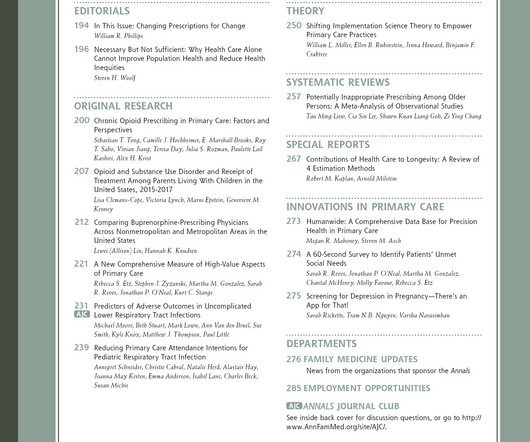Gathering Family Perspectives on Integrated Care
Integrated Care News by CFHA
MARCH 12, 2025
I am sharing a few excerpts from a family interview I conducted a few years ago that illustrates how integrated behavioral health enhances the four primary care functions. Jamie Devine, DSW, is this practice’s integrated behavioral health clinician. So, I think it’s amazing.” Sometimes we make fidgets.












Let's personalize your content